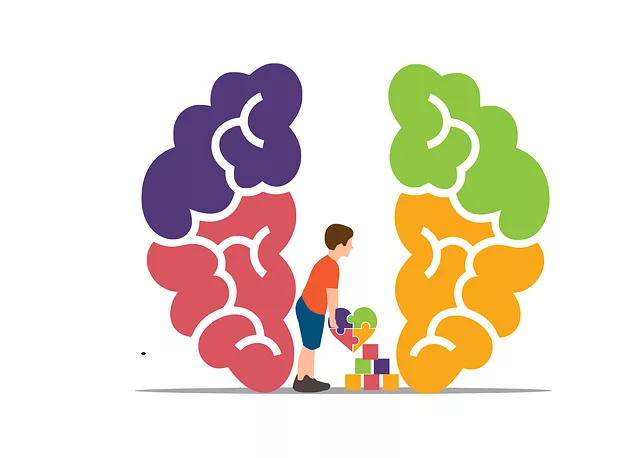Mastering Anxiety: Therapy, Management Techniques, and Long-term Resilience
Kaiser in Superior boasts an excellent reputation for anxiety management, offering tailored care thr…….
In the ever-evolving landscape of healthcare, access to quality mental health services is a paramount concern. Among various providers, Kaiser Permanente stands out as a prominent healthcare organization known for its comprehensive care models. A recurring question among those seeking therapy is: Does Kaiser have good therapists? This article delves into the intricacies of superior therapist quality within the Kaiser framework, exploring multiple facets to provide a holistic understanding. We will navigate through definitions, global impacts, economic considerations, technological advancements, policy frameworks, challenges, real-world case studies, and future prospects, ultimately aiming to shed light on the effectiveness of Kaiser’s therapeutic services.
The phrase “does Kaiser have good therapists superior” essentially queries the quality and efficacy of therapeutic services offered by Kaiser Permanente, a renowned healthcare network with a global presence. It involves evaluating several critical factors:
Therapist Expertise: This encompasses the clinical skills, specialized training, and experience of mental health professionals within Kaiser.
Patient Outcomes: Measuring the positive outcomes and improvements achieved by patients undergoing therapy at Kaiser facilities.
Access and Availability: Assessing the accessibility and timeliness of therapeutic services, ensuring patients can receive needed care promptly.
Patient Satisfaction: Gauging patient satisfaction levels with their therapists and the overall therapeutic experience.
Systematic Approach: Evaluating Kaiser’s structured and integrated care models to understand how they contribute to superior therapy outcomes.
Historically, Kaiser Permanente has been at the forefront of delivering innovative healthcare solutions, including mental health services. The organization’s commitment to evidence-based practices and patient-centered care has set a benchmark for excellence in therapist quality.
The influence of Kaiser’s therapeutic model extends beyond its borders, shaping global mental healthcare trends:
International Adoption: Many countries have adopted elements of Kaiser’s integrated care approach, recognizing its potential to improve patient outcomes. For instance, Japan has implemented comprehensive mental health programs inspired by Kaiser’s model, leading to enhanced accessibility and improved patient satisfaction.
Telehealth Expansion: The rise of telehealth, facilitated by technological advancements, aligns with Kaiser’s early adoption of remote therapy services. This trend is particularly notable in regions with limited mental healthcare resources, allowing more individuals to access therapists from the comfort of their homes.
Global Mental Health Initiatives: International organizations like the World Health Organization (WHO) have emphasized the importance of integrating mental health into primary care systems, a strategy consistent with Kaiser’s holistic approach. This has prompted various countries to invest in similar care models.
From an economic perspective, “does Kaiser have good therapists?” is also a question of market dynamics and investment:
Market Position: Kaiser Permanente operates as a non-profit healthcare organization, offering its services to a diverse range of populations. This unique business model allows for significant investments in mental health infrastructure, attracting top talent and fostering a culture of excellence among therapists.
Cost-Effectiveness: Research suggests that Kaiser’s comprehensive care models can lead to reduced healthcare costs while improving patient outcomes. For example, a study published in Health Services Research (2018) found that Kaiser patients with chronic mental health conditions experienced lower utilization rates for emergency services and inpatient hospitalizations.
Investment in Training: The organization invests heavily in therapist training and professional development, ensuring they stay updated with the latest evidence-based practices. This commitment to education translates into higher-quality care for patients.
Technology plays a pivotal role in modern therapy practice, and Kaiser has been at the forefront of embracing these innovations:
| Technological Integration | Impact | Future Potential |
|---|---|---|
| Telehealth Platforms | Enables remote therapy sessions, increasing accessibility for rural or geographically distant patients. | Further development could include AI-assisted telehealth, providing personalized treatment recommendations and 24/7 support. |
| Digital Therapeutic Tools | Offers online modules, apps, and interactive exercises to supplement traditional therapy. | Advanced AI algorithms can create tailored digital interventions based on patient progress, enhancing treatment adherence. |
| Electronic Health Records (EHRs) | Streamlines patient data management, improving therapist accessibility to comprehensive patient histories. | EHR integration with wearables and IoT devices can provide real-time health data for more precise treatment planning. |
These technological advancements not only enhance the efficiency of therapy delivery but also contribute to superior outcomes by enabling therapists to tailor interventions to individual needs.
The regulatory landscape significantly influences the quality of mental healthcare services, including Kaiser’s therapeutic offerings:
Licensing and Certification: Therapists at Kaiser must adhere to strict licensing and certification requirements, ensuring they meet professional standards.
Privacy Laws (e.g., HIPAA): These laws protect patient data, enabling Kaiser to maintain high confidentiality standards while providing secure digital therapy platforms.
Mental Health Parity Act: In the United States, this legislation mandates equal coverage for mental health and substance use disorder services, influencing Kaiser’s insurance policies and access to care.
Global Mental Health Agreements: International collaborations, such as the WHO’s Mental Health Action Plans, guide countries’ efforts to strengthen mental healthcare systems, aligning with Kaiser’s global initiatives.
Despite its many strengths, Kaiser’s therapeutic services are not without challenges and criticisms:
Therapist Burnout: As with any large healthcare organization, Kaiser faces the challenge of therapist burnout due to high caseloads and demanding work environments. Strategies to mitigate this include workload management, supervision, and access to support networks.
Cultural Sensitivity: Critics argue that Kaiser’s therapy services could do more to cater to diverse cultural needs. Implementing culturally competent practices and training ensures that therapists can provide sensitive and effective care to a wide range of patients.
Accessibility for Underserved Populations: While Kaiser aims for accessibility, disparities exist in the distribution of its facilities and resources, potentially limiting access for low-income or rural communities. Expanding outreach programs and partnerships can help address these issues.
Real-world examples illustrate successful implementations of superior therapist quality within the Kaiser framework:
Youth Mental Health Program (YMHP): Kaiser’s YMHP in California has been recognized for its comprehensive approach, integrating therapy with peer support and family engagement. This program has shown significant improvements in youth mental health outcomes, with reduced rates of depression and anxiety.
Integrative Care Model for Chronic Conditions: Kaiser’s model for managing chronic conditions like diabetes and heart disease includes specialized therapists who collaborate with primary care providers. This holistic approach leads to improved patient adherence and better long-term outcomes.
Cultural Competency Training: Kaiser’s initiative to provide extensive cultural competency training to its therapists has been praised for promoting more inclusive and effective therapy practices, especially in diverse urban settings.
The future of therapist quality within the Kaiser framework looks promising, with several growth areas and emerging trends:
Personalized Medicine: Building upon its existing evidence-based practice framework, Kaiser can further tailor therapy to individual genetic profiles and neurodiversity, offering more precise interventions.
AI Integration: Artificial intelligence has the potential to revolutionize therapy by providing 24/7 support, personalized treatment recommendations, and automated monitoring of patient progress.
Global Expansion: With its proven track record, Kaiser’s therapeutic model is poised for further global expansion, particularly in regions with limited mental healthcare resources.
Community-Based Initiatives: Expanding community outreach programs and partnerships can improve access to care for underserved populations, strengthening Kaiser’s commitment to inclusive healthcare.
In conclusion, “does Kaiser have good therapists superior?” is a question that resonates deeply within the mental healthcare community. Through this comprehensive analysis, we have explored various facets of this inquiry, painting a clear picture of Kaiser Permanente’s strengths and contributions to superior therapist quality. By integrating technological advancements, adhering to robust policy frameworks, and prioritizing patient-centered care, Kaiser continues to set a global benchmark for excellence in therapy services.
Q: Are Kaiser therapists board-certified?
A: Yes, all therapists at Kaiser Permanente are required to be licensed and many hold additional certifications relevant to their specialty areas.
Q: How does Kaiser ensure therapist training stays current?
A: Kaiser invests heavily in ongoing professional development for its therapists, providing access to the latest research, workshops, and online training modules.
Q: Can I get therapy at Kaiser if I don’t have insurance?
A: Kaiser offers a range of affordable plans and has community-based programs to support individuals without insurance. Contact your local Kaiser facility for specific details.
Q: Are Kaiser’s therapy services accessible remotely?
A: Yes, Kaiser has embraced telehealth, allowing patients to access therapists from the comfort of their homes via video conferencing and other digital platforms.
Q: How does Kaiser address cultural diversity in therapy?
A: Kaiser provides extensive training on cultural competency to ensure its therapists can provide sensitive and effective care to a diverse range of patients. This includes understanding various cultural beliefs, practices, and language barriers.

Kaiser in Superior boasts an excellent reputation for anxiety management, offering tailored care thr…….

Mental health advocacy, as demonstrated by organizations like Kaiser, is a powerful tool for improvi…….

Coping Skills Development is vital for maintaining and enhancing mental well-being, especially durin…….

Social Skills Training (SST) at superior healthcare providers like Kaiser effectively improves inter…….

Mental health professionals at Kaiser employ robust risk management strategies, integrating evidence…….

Mental wellness self-assessment tools are essential for understanding and improving emotional well-b…….

Crafting an effective mental wellness app marketing strategy requires understanding target audiences…….